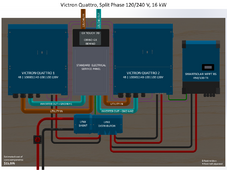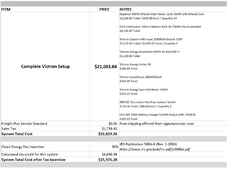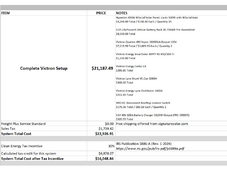Greetings everyone,
I'm currently in the process of researching and planning my off-grid solar power setup. It's going to support some significant power demands including larger motor-driven equipment, a well pump, central HVAC, and a fully electric kitchen. After much research, I've somewhat narrowed down my options to the Schneider XW Pro (x2), a Single Phase 120/240 V, 13.6 kW system, and the Victron Quattro 10k (x2), a Split Phase 120/240 V, 16 kW system. Please see the following rough slides for the basic / core systems and estimated prices.
I'd greatly appreciate hearing from anyone with firsthand experience with either of these systems. Looking to push the pendulum in a direction.
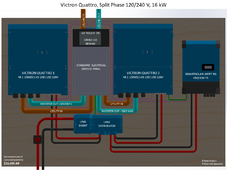
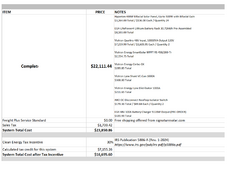
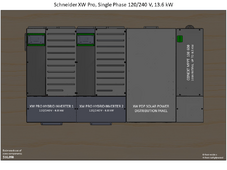
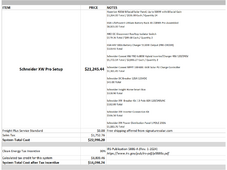
Corrected Victron Parts listing to include Lynx Shunt.
Many thanks in advance!
I'm currently in the process of researching and planning my off-grid solar power setup. It's going to support some significant power demands including larger motor-driven equipment, a well pump, central HVAC, and a fully electric kitchen. After much research, I've somewhat narrowed down my options to the Schneider XW Pro (x2), a Single Phase 120/240 V, 13.6 kW system, and the Victron Quattro 10k (x2), a Split Phase 120/240 V, 16 kW system. Please see the following rough slides for the basic / core systems and estimated prices.
I'd greatly appreciate hearing from anyone with firsthand experience with either of these systems. Looking to push the pendulum in a direction.




Corrected Victron Parts listing to include Lynx Shunt.
Many thanks in advance!
Attachments
Last edited:



